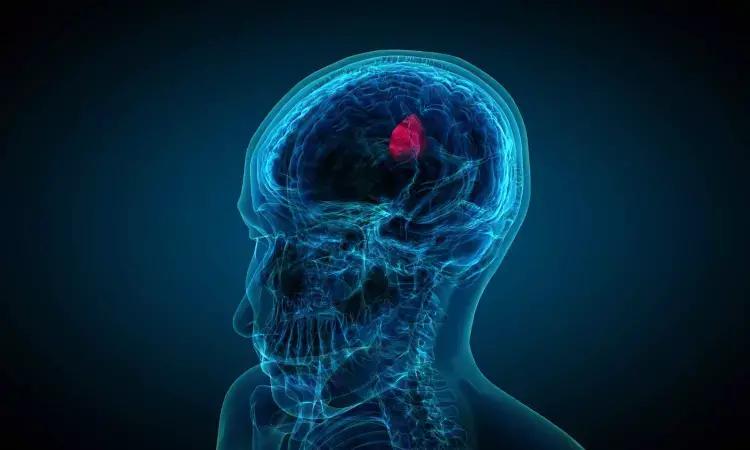Vorasidenib A Potential Breakthrough Treatment For IDH-Mutant Gliomas
- byDoctor News Daily Team
- 21 July, 2025
- 0 Comments
- 0 Mins

Brain tumors have remained one of the most challenging health concerns to treat, with gliomas leading the charts as the predominant malignant primary brain tumors in adults. Their classification, based on a combined analysis of histologic and molecular features, as delineated by the World Health Organization (WHO), has seen a paradigm shift with the discovery of the role of IDH1 and IDH2 gene mutations. Found in virtually all adult grade 2 diffuse gliomas, these mutations have become central to understanding glioma progression and treatment.
The mutations in IDH1 or IDH2 lead to the aberrant production of a metabolite called 2-hydroxyglutarate. Accumulation of this metabolite brings about widespread cellular disruptions, affecting DNA hydroxymethylation, gene expression patterns, cellular differentiation, and the tumor environment. Consequently, gliomas with these mutations are distinctly classified as either oligodendrogliomas (when coupled with a 1p/19q-codeletion) or astrocytomas (without the 1p/19q codeletion). These tumors, though initially slow-growing, can aggressively infiltrate normal brain tissue over time, with some eventually transitioning to a more malignant form.
The current gold standard in managing these gliomas combines radiation therapy and chemotherapy. Especially for high-risk patients with IDH-mutant grade 2 gliomas and those with grade 3 gliomas, this combined approach often results in prolonged disease remission. However, it falls short of being curative and is notorious for its side effects, notably neurocognitive dysfunction. This has led to a "watch-and-wait" strategy for many with IDH-mutant grade 2 gliomas, where they are routinely monitored via MRI scans post-diagnosis, deferring aggressive treatments to prevent potential long-term toxicities.
The INDIGO trial introduced a ray of hope in this scenario. This phase 3 trial investigated vorasidenib, a drug specifically designed to inhibit mutant IDH1 and IDH2 enzymes and effectively cross the blood-brain barrier. The participants were glioma patients, most commonly diagnosed in adults below 50 years, who had not yet undergone any cancer therapy. The study's outcomes painted a promising picture. Compared to the placebo group, patients receiving vorasidenib witnessed a substantial improvement in progression-free survival. The timeframe to the next therapeutic intervention was also significantly delayed, leading to the trial's unblinding and offering vorasidenib to the placebo group.
Vorasidenib's safety profile is reassuring, characterized predominantly by low-grade toxic effects. Though there was a slightly elevated incidence of grade 3 or higher adverse events in the vorasidenib group, the occurrences of serious adverse events and treatment discontinuations remained low.
The INDIGO trial serves as a pivotal study emphasizing the potential of molecularly targeted therapies in the early stages of tumorigenesis. Vorasidenib's demonstrated efficacy in untreated WHO grade 2 gliomas sets a precedent for future trials with a similar patient-centric design. While current treatments rely heavily on risk determinants like age, surgical outcome, and disease grade, the INDIGO trial showcases the potential of individualized treatment based on molecular markers. While vorasidenib shines in the INDIGO trial, additional studies will be crucial to ascertain its role, either alone or combined with other treatments, especially in glioma patients who have undergone previous cancer treatments or those presenting with higher-grade tumors.
Reference
Vorasidenib in IDH1- or IDH2-Mutant Low-Grade Glioma
Ingo K. Mellinghoff et al
N Engl J Med 2023; 389:589-601
DOI: 10.1056/NEJMoa2304194
Disclaimer: This website is designed for healthcare professionals and serves solely for informational purposes.
The content provided should not be interpreted as medical advice, diagnosis, treatment recommendations, prescriptions, or endorsements of specific medical practices. It is not a replacement for professional medical consultation or the expertise of a licensed healthcare provider.
Given the ever-evolving nature of medical science, we strive to keep our information accurate and up to date. However, we do not guarantee the completeness or accuracy of the content.
If you come across any inconsistencies, please reach out to us at
admin@doctornewsdaily.com.
We do not support or endorse medical opinions, treatments, or recommendations that contradict the advice of qualified healthcare professionals.
By using this website, you agree to our
Terms of Use,
Privacy Policy, and
Advertisement Policy.
For further details, please review our
Full Disclaimer.
Recent News
Only 31 percent families of doctors who died battl...
- 06 November, 2025
NEET 2025: MP DME releases mop up round allotment...
- 06 November, 2025
PG Medical Admissions 2025: CEE Kerala publishes f...
- 06 November, 2025
Daily Newsletter
Get all the top stories from Blogs to keep track.


0 Comments
Post a comment
No comments yet. Be the first to comment!